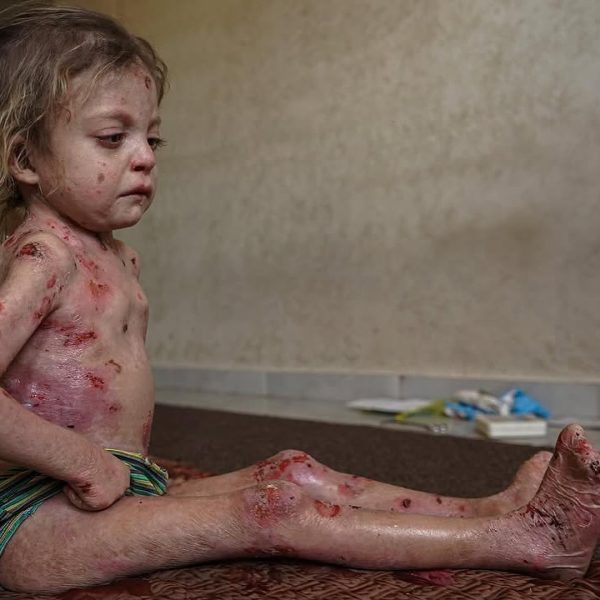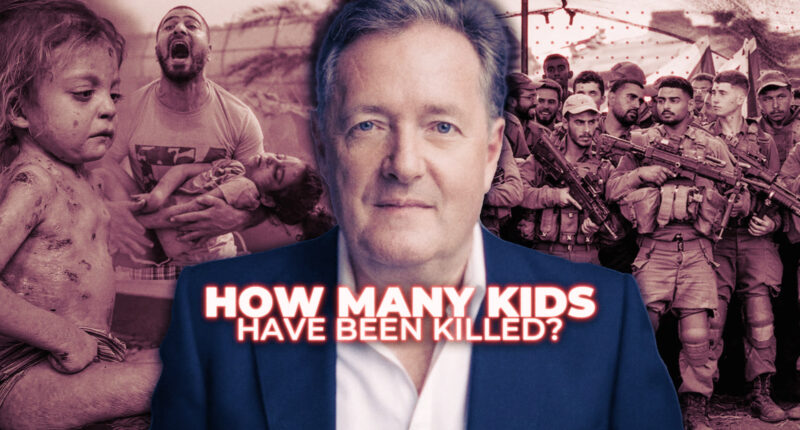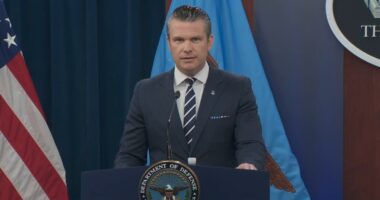Last Updated on May 29, 2025
Piers Morgan’s confrontation with Israel Ambassador Tzipi Hotovely has ignited a accountability debate over the war in Gaza, challenging the transparency of Israel’s military actions.
This exchange has sparked global discussions on the ethical implications of the conflict, particularly regarding the discrepancy between known terrorist casualties and unknown child deaths.
Specifically, Morgan challenged Hotovely, stating,
“You are killing a lot of children on a daily basis, that is indisputable. My interesting question for you is how come you know exactly how many Hamas terrorists you’ve killed but you have no idea how many children you’ve killed?”
Consequently, this exchange, captured in a video, fuels the accountability debate over Israel’s military actions and their impact on civilian lives.
The Debate Over Child Casualties in Gaza
The accountability debate over child casualties in Gaza has been significantly intensified by Israel Ambassador Tzipi Hotovely’s response to Piers Morgan’s pointed questioning. Hotovely stated,
“We killed 30,000 terrorists in phase one of the war… we never target civilians so this question is irrelevant,”
a claim that has sparked widespread scrutiny and criticism. Morgan persisted, challenging her with,
“Why don’t you know the statistics? Are you saying no children have been killed in Gaza?”
This relentless line of questioning underscores the glaring discrepancy between Israel’s detailed tracking of terrorist casualties and its apparent lack of data on child deaths, highlighting the known number of terrorists killed versus the unknown number of children, and raising critical questions about transparency and responsibility.
The accountability debate fuels a broader discussion on the ethical implications of military operations in conflict zones, as Hotovely deflected by blaming Hamas for using children as human shields, further intensifying the scrutiny over Israel’s conduct and the moral obligations it faces.

Israel’s Military Actions and Global Perception
The accountability debate extends to Israel’s broader military strategy, encompassing not just the immediate actions in Gaza but the overarching approach to the conflict.
Morgan’s criticism,
“You’re waging a systematic destruction not just of property and of land but also of children,”
reflects a growing global concern that Israel’s military tactics may be disproportionately impacting civilian lives, particularly the most vulnerable. This concern is amplified by Amnesty International’s report, which states,
“Month after month, Israel has treated Palestinians in Gaza as a subhuman group unworthy of human rights and dignity, demonstrating its intent to physically destroy them,”
underscores the severity of the situation, stating,
“Month after month, Israel has treated Palestinians in Gaza as a subhuman group unworthy of human rights and dignity, demonstrating its intent to physically destroy them.”
highlighting a pattern of behavior that challenges the moral and legal frameworks of international warfare.
The debate extends beyond the battlefield, questioning if Israel’s strategy targets terrorists or contributes to a humanitarian crisis.
Israel’s defense,
“We only target the terrorists,”
stands in stark contrast to child deaths and civilian infrastructure destruction, demanding a reevaluation for accountability and regional stability.
The Path Forward
The accountability debate in the Israel-Gaza conflict requires urgent action. Hotovely’s inability to account for child casualties threatens international trust and moral standing. The stakes are high. The world deserves transparency, not evasion.
It’s time for Israel to uphold accountability, not erode it, and to address the human cost of war. The future of global peace hinges on this defense.
















